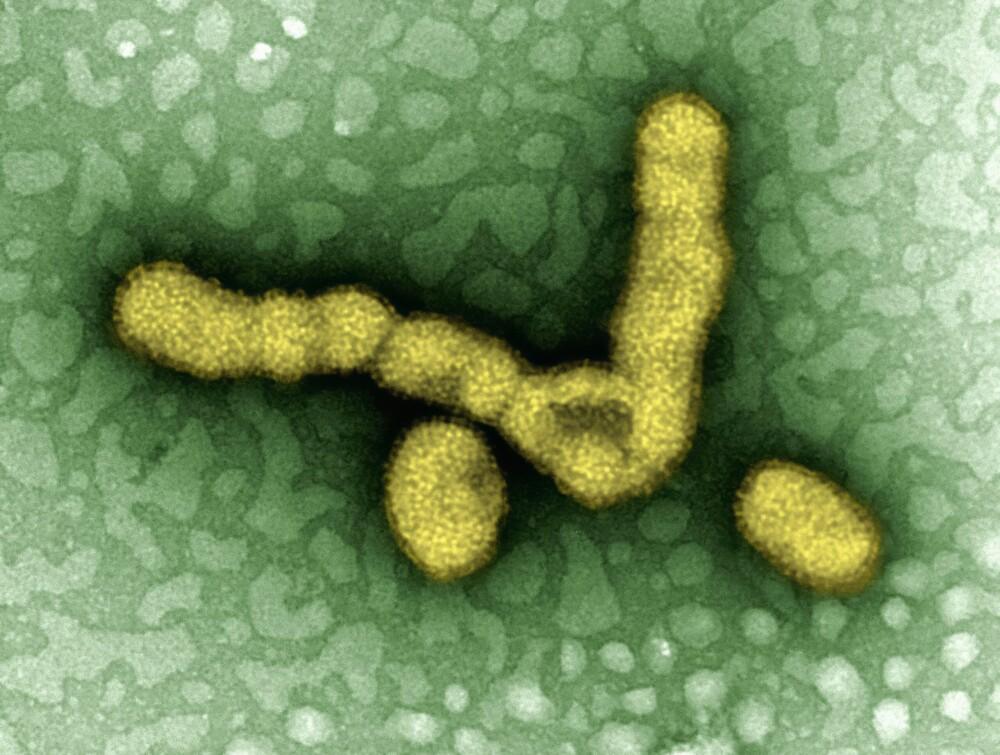What Is Epstein-Barr Virus and How Does It Affect the Body?
Epstein-Barr Virus (EBV) is a contagious herpesvirus, commonly known as “Herpesvirus 4.”
Studies conducted at James Cook University research departments account for 137,900-208,900 deaths in 2020. The virus is associated with several types of cancer, affecting those with a weakened immune system.
Many people are infected with the Epstein-Barr virus without being aware of it.
This article will cover everything you need to know about EBV and how it affects the body.
How Common Is Epstein-Barr Virus?
Epstein-Barr Virus has an average prevalence of 95%, according to studies done at Philadelphia College and St. Lucie Medical. The CDC also confirmed that 9 in 10 adults have antibodies associated with EBV.
Most of the patients diagnosed with EBV present an asymptomatic infection. Symptoms vary by age distribution, including the following:
- Children: Asymptomatic or mild symptoms
- Teens: Most noticeable symptoms
- Adults: Less noticeable symptoms than teens
According to studies conducted by UK researchers, 25%-80% of those infected are symptomatic. EBV infects most adults, but very few realize they’ve been infected.
How Is Epstein-Barr Virus Transmitted?
Epstein-Barr Virus spreads via fluids from the body. Viral shedding can happen even before a person is symptomatic, including the following:
Saliva
The most common transmission method. This is also why EBV is commonly called the “kissing disease.” Infection also occurs through coughing. This happens when the droplets come directly from someone with an infection.
Blood
Blood contains significant amounts of EBV. This means that someone can get an infection after coming in contact with a patient’s blood. This is mostly common in blood transfusions and organ transplants.
Contaminated Objects
EBV is also transmitted through contaminated objects such as eating utensils or towels. Surfaces contaminated with the virus, such as doorknobs, can also spread infection.
Sexual Fluids
EBV is present in sexual fluids and can be transmitted through intercourse. This is less common, but it happens if someone has an active infection.
What Are the Symptoms of an EBV Infection?
The most common symptoms of EBV infections are fever, sore throat, and swollen lymph nodes. Also, the infection causes fatigue in most patients.
However, other less common symptoms include the following:
- Enlarged spleen
- Skin rashes (non-itchy)
- Enlarged liver
- Jaundice
- Body aches
- Chest pain
- Light sensitivity
- Coughing
- Eye pain
- Headaches
The symptoms of EBV appear in clusters and depend on the patient’s immune system. Most symptoms clear after a few weeks, but fatigue can linger for a longer time. The virus becomes dormant afterward.
Complications such as ruptured spleens happen in rare cases. Since the lymph nodes swell in response to the infection, it can also progress into mononucleosis.
What Happens When Epstein-Barr Virus Becomes Dormant?
After the Epstein-Barr Virus becomes dormant, it lives in the host’s body for the rest of their lives. This is common with most viruses of the herpesvirus family.
The virus sleeps in the B-cells of your immune system and the viral reservoirs will not actively replicate. Reactivation occurs under stress and other factors.
What Triggers Epstein-Barr Virus Reactivation?
Stress can trigger the reactivation of Epstein-Barr. Whether it’s physical or emotional stress, it weakens the immune cells. Studies conducted on a control group in Japan show that 16.4% of EBV reactivations are caused by psychological distress.
However, reactivation is also possible with the following triggers:
- Hormone shifts
- Immune dysregulation
- Chronic illness
- Immune suppression medicine
- Mold exposure and mycotoxin illness
- Microbiome imbalances
Naturopathic care helps with prevention while strengthening the immune system. Treatments such as herbal remedies, nutrient-rich diets, and a healthy lifestyle prevent reactivation. Focus on Vitamin C, Omega-3 fatty acids, and Zinc, as immune resilience prevents flare-ups.
How Is Epstein-Barr Virus Diagnosed?
Epstein-Barr virus is diagnosed through a specialized blood test to detect EBV antibodies (VCA IgM, IgG, EBNA). This can determine if the patient is in the early stages of an infection or if the virus is dormant.
A monospot test also detects heterophile antibodies, which appear after an EBV infection. This test is used to diagnose mononucleosis but has limitations for EBV virus presence. Monospot misses early infections, leading to false negatives.
A high white blood cell count is also suggestive of EBV presence. Doctors look for an increased number of atypical lymphocytes to help diagnose the virus. The test is not reliable on its own, but a good option in combination with monospot.
Epstein-Barr virus can be diagnosed at home with a test bought at a pharmacy. However, patients should consider the limitations of home testing kits. They cannot differentiate between active and past infections and are not as reliable as professional tests. The CDC doesn’t recommend them for general use due to their lower accuracy compared to professional lab tests.
Is There a Cure for Epstein-Barr Virus?
There is no cure for EBV, as the virus remains in the body. However, infection resolution occurs within a few weeks, and the patients become asymptomatic. Conventional medicine doctors may recommend fluid, rest, and over the counter fever reducers to patients to alleviate their symptoms.
How Do Naturopathic Doctors Support EBV Recovery?
Naturopathic doctors support EBV recovery by offering functional testing and a holistic care approach. Common options for naturopathic care include adaptogens, stress management, and botanicals.
These are described in more detail below:
- Adaptogens: Active ingredients derived from plants that affect how you deal with stress. These include Panax ginseng, Rhodiola crenulata, and more.
- Botanicals: These herbs support immune system balance. Common treatments include Elderberry and Echinacea.
- Natural Antivirals: Common antiviral herbs such as licorice root, olive leaf extract, and astragalus help support recovery.
A NYC naturopath helps create a treatment plan that includes testing and treatments. Naturopathic doctors tailor treatment plans to your stage of infection, preventing reactivation.
What Are the Long-Term Effects of Epstein-Barr Virus?
Epstein-Barr Virus that has not been effectively treated can lead to chronic EBV. Studies conducted on 500 chronic EBV patients show that 45% of them are periodically bedridden due to chronic fatigue syndrome.
EBV contributes to immune system issues such as Multiple Sclerosis (MS) or other autoimmune triggers. In rare cases, it leads to cancers such as non-Hodgkin lymphoma or nasopharyngeal cancer. It’s important to understand that these risks are lower if the patient receives the appropriate care on time.
Final Thoughts: Understanding EBV from a Whole-Body Perspective
EBV continues its lifecycle upon entering the body, but ongoing care keeps the immune system under control. A naturopath helps support natural healing through holistic prevention. Lifestyle choices also strengthen immunity, so take the proper precautions for reactivation prevention.
In our experience, when looking at the patients case as a whole and supporting their unique needs, we have seen many patients feel significantly better with EBV symptoms and can regain quality of life.






